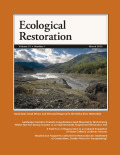
Ecological Restoration
Scope & Guideline
Advancing the science of ecological healing.
Introduction
Aims and Scopes
- Ecosystem Restoration Techniques:
The journal emphasizes various methodologies for restoring ecosystems, including but not limited to plant community recovery, soil amendments, and management of invasive species. - Biodiversity Assessment and Monitoring:
A core focus is on assessing biodiversity in restored areas, evaluating species composition, and understanding ecological interactions to inform future restoration practices. - Socio-Ecological Dynamics:
The intersection of social sciences with ecological restoration is highlighted, exploring community engagement, public perception, and socio-political factors influencing restoration projects. - Long-Term Ecological Monitoring:
Research that investigates the long-term outcomes and sustainability of restoration efforts is a key area, providing insights into the effectiveness and adaptability of various approaches over time. - Climate Change Mitigation and Adaptation:
The journal addresses the role of ecological restoration in climate change mitigation, discussing strategies that enhance resilience of ecosystems against climate-related challenges.
Trending and Emerging
- Community Engagement and Social Equity:
There is a growing emphasis on the role of community involvement and social equity in restoration projects, with studies exploring how diverse stakeholders can influence restoration outcomes and decision-making processes. - Interdisciplinary Approaches:
An increasing number of papers are integrating methods and insights from various disciplines, including social sciences, economics, and environmental design, to address complex restoration challenges. - Restoration in Urban Environments:
Urban ecological restoration is gaining traction, with a focus on enhancing biodiversity and ecosystem services in highly urbanized areas, indicating a shift towards addressing ecological needs in human-dominated landscapes. - Climate Resilience and Adaptive Restoration:
Research is increasingly highlighting strategies for enhancing the resilience of ecosystems to climate change, focusing on adaptive management techniques that allow for flexibility in restoration practices. - Technological Innovations in Restoration:
The application of new technologies, such as remote sensing and data analytics, in monitoring and assessing restoration outcomes is emerging as a significant theme, reflecting the importance of data-driven approaches in ecological restoration.
Declining or Waning
- Traditional Restoration Practices:
There has been a noticeable decline in papers focusing solely on traditional restoration practices without integrating innovative or adaptive approaches, suggesting a shift towards more dynamic and context-specific methodologies. - Species-Specific Studies Without Broader Context:
Research concentrating on single species restoration efforts, without addressing broader ecosystem interactions or community impacts, appears to be less prominent, reflecting a growing recognition of the need for holistic approaches. - Generalized Invasive Species Management:
Studies that provide generalized management strategies for invasive species without localized or context-specific adaptations are becoming less frequent, indicating a trend towards more tailored solutions based on ecological and social contexts.
Similar Journals
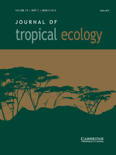
JOURNAL OF TROPICAL ECOLOGY
Unveiling the Complexities of Tropical EcologyThe JOURNAL OF TROPICAL ECOLOGY, published by Cambridge University Press, serves as a pivotal platform for advancing knowledge in the field of ecology, particularly within tropical environments. With an ISSN of 0266-4674 and an E-ISSN of 1469-7831, this esteemed journal has been a key resource since its inception in 1985, maintaining a focus on empirical research that addresses the complexities of tropical ecosystems. It holds a respectable Q3 ranking in the Ecology, Evolution, Behavior and Systematics category as of 2023, indicating its significant contribution to the field, although it remains within the competitive mid-range. The journal publishes original research, reviews, and methodological articles that illuminate the rich biodiversity and unique ecological processes of tropical regions, fostering a deeper understanding of conservation challenges. Accessible from the United Kingdom, this publication appeals to a diverse audience of researchers, professionals, and students keen on exploring ecological dynamics in tropical settings, and plays a crucial role in promoting scientific discourse and collaborative efforts aimed at preserving our planet's vital ecosystems.

BIOLOGICAL INVASIONS
Exploring the dynamics of biodiversity in the face of invasion.BIOLOGICAL INVASIONS, published by Springer, stands at the forefront of ecological research, providing a vital platform for studies related to invasive species and their impacts on biodiversity and ecosystem dynamics. With an impressive impact factor reflecting its high-quality contributions, this esteemed journal has established itself in the Q1 category in both Ecology and Ecology, Evolution, Behavior and Systematics, highlighting its significance within these fields. The journal is indexed in the renowned Scopus database, ranking 113th out of 721 in Agricultural and Biological Sciences, and 82nd out of 461 in Environmental Science, affirming its importance and reach among ecological research. Since its inception in 1999, BIOLOGICAL INVASIONS has published cutting-edge research, fostering a deeper understanding of the dynamics of species invasions and their ecological consequences. While it does not currently offer Open Access, researchers, professionals, and students will find invaluable insights and the latest advancements in biodiversity conservation, ecosystem management, and invasion biology within its pages. This journal serves as an essential resource for those committed to addressing the challenges posed by biological invasions, making it a cornerstone in ecological literature.
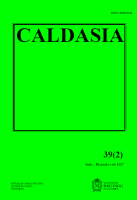
CALDASIA
Fostering Connections in the World of Biological ResearchCALDASIA is a distinguished open-access journal dedicated to the field of Agricultural and Biological Sciences, published by INST CIENCIAS NATURALES, MUSEO HISTORIA NATURAL since its inception in 1981. Based in Colombia, this journal plays a pivotal role in disseminating scientific knowledge and fostering research collaboration across the globe. With a focus on diverse subjects within the biological sciences, CALDASIA aims to bridge gaps in research and support scholars, professionals, and students in advancing their work. With a 2023 Scopus Ranking of #132 out of 221 in its category, representing a 40th percentile ranking, it holds a solid position in the academic community, particularly recognized for its contributions to miscellaneous areas within agricultural and biological sciences. The journal remains committed to enhancing accessibility, as evidenced by its open-access policy since 2001, thereby ensuring that research findings reach a wider audience without barriers. For those returning to this vibrant field, CALDASIA serves as an essential resource for contemporary findings and discussions that shape environmental and biological scholarship.
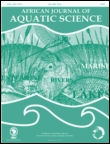
AFRICAN JOURNAL OF AQUATIC SCIENCE
Connecting researchers to the pulse of aquatic ecosystems.AFRICAN JOURNAL OF AQUATIC SCIENCE, published by TAYLOR & FRANCIS LTD, is a premier scholarly journal dedicated to the field of aquatic science, ecology, and environmental management, playing a crucial role in advancing research and knowledge in these vital areas. With an impressive Q2 ranking in both Aquatic Science and Ecology, Evolution, Behavior and Systematics, the journal seeks to publish high-quality research encompassing a wide range of topics related to freshwater and marine ecosystems, including biodiversity, conservation strategies, and the impacts of climate change. Featuring a rich history of publication from 2000 to 2024, the journal not only embraces rigorous peer review but also aims to foster collaboration and dialogue among researchers, practitioners, and students interested in aquatic environments. Readers will find that the journal’s commitment to impactful scientific communication is reflected in its notable rankings within the Scopus database, making it an essential resource for those engaged in aquatic research and management.
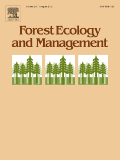
FOREST ECOLOGY AND MANAGEMENT
Pioneering Research for Forest ConservationFOREST ECOLOGY AND MANAGEMENT is a premier peer-reviewed journal dedicated to the integral study of forest ecosystems and their management, published by Elsevier in the Netherlands. With an impactful presence in the field, this journal boasts a prestigious Q1 ranking in multiple categories, including Forestry, Management, Monitoring, Policy and Law, and Nature and Landscape Conservation as of 2023. It addresses key issues relevant to sustainable forest practices, conservation strategies, and environmental monitoring, making it a vital resource for researchers, practitioners, and policymakers alike. The journal is indexed with an impressive Scopus rank, placing it among the top tier of titles in Agricultural and Biological Sciences and Environmental Science. While it does not offer Open Access options, its rigorous review process and high visibility make it essential for those seeking to stay abreast of the latest findings and trends in forest ecology and management. Published continuously since 1976, FOREST ECOLOGY AND MANAGEMENT aims to foster interdisciplinary collaboration and advance knowledge critical to the stewardship of forest resources in an ever-changing global landscape.
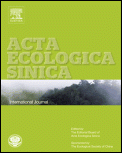
Acta Ecologica Sinica
Illuminating ecological challenges through rigorous research.Acta Ecologica Sinica, published by Elsevier, is a prominent journal in the field of ecology, with a strong focus on fostering understanding in ecological principles and their applications. Established in China, this journal holds an impressive Q2 categorization in both Ecology and Ecology, Evolution, Behavior and Systematics as of 2023, positioning it within the top tier of ecological research. With its Scopus rankings placing it in the 81st and 78th percentiles in relevant ecological domains, it serves as a vital platform for researchers and practitioners to disseminate findings that promote ecological sustainability. Although it operates under a traditional access model, its significant impact is underscored by its systematic convergence of key ecological inquiries across multiple years (2006-2008, 2014, 2017-2023). By engaging with the latest empirical studies, theoretical advancements, and methodological innovations, Acta Ecologica Sinica is indispensable for scholars dedicated to advancing ecological knowledge and addressing environmental challenges.
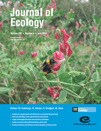
JOURNAL OF ECOLOGY
Unraveling the complexities of ecological interactions.JOURNAL OF ECOLOGY, published by Wiley, stands as a leading publication in the field of ecology, evolution, behavior, and plant science, currently positioned in the prestigious Q1 quartile across these categories. Established in 1976, the journal has consistently provided a platform for innovative research and critical discourse related to ecological patterns, processes, and interactions. With its robust Scopus ranking—31st out of 721 in Ecology, Evolution, Behavior and Systematics, and 26th out of 516 in Plant Science—this journal notably reflects the high impact and influence of its articles in the scientific community. Although it does not offer open access options, the journal ensures comprehensive dissemination of pivotal findings to researchers, professionals, and students alike. Located in the United Kingdom at 111 River St, Hoboken, NJ, the JOURNAL OF ECOLOGY remains an essential resource for those dedicated to advancing our understanding of ecological systems and their complexities.

Contemporary Problems of Ecology
Navigating Today’s Ecological Dilemmas with InsightContemporary Problems of Ecology, published by MAIK NAUKA/INTERPERIODICA/SPRINGER, is a premier journal committed to advancing research in the field of Environmental Science. Since its inception in 2008, this journal has carved a niche for itself in addressing the pressing ecological challenges of our times, catering to an audience comprising researchers, professionals, and students dedicated to the sustainability and environmental health of our planet. The journal is indexed in Scopus, with a current ranking of #165 out of 233 in the Environmental Science category, reflecting its contributions to the academic community, despite its position in the 29th percentile. With the latest quartile ranking placing it in Q3 for miscellaneous Environmental Science from 2023, the journal continues to be a vital resource for disseminating innovative research findings. Contemporary Problems of Ecology promotes open access scholarship and aims to foster a dialogue among experts, making it an essential platform for those looking to engage with contemporary ecological issues and solutions. The journal actively seeks to publish original research articles, reviews, and case studies that push the boundaries of our understanding of environmental systems.
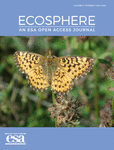
Ecosphere
Exploring the intricate web of life and its systems.Ecosphere is a leading open-access journal published by WILEY, dedicated to advancing research in the fields of ecology, evolution, behavior, and systematics. Established in 2010 and headquartered in the United States, this innovative journal provides a platform for the exchange of cutting-edge scientific knowledge and discovery, fulfilling its mission to enhance our understanding of ecological systems and their interactions. With a prestigious impact factor reflecting its commitment to high-quality research, Ecosphere is ranked Q1 in both Ecology and Ecology, Evolution, Behavior, and Systematics for 2023, further solidifying its prominence in the scientific community. The journal's scope includes a wide array of topics related to environmental science, making it an essential resource for researchers, professionals, and students aiming to stay at the forefront of ecological research. It offers comprehensive open access options, ensuring that groundbreaking findings are readily available to a global audience, thus fostering collaboration and innovation in the field.
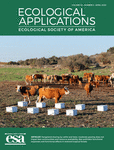
ECOLOGICAL APPLICATIONS
Unveiling the complexities of ecological systems.ECOLOGICAL APPLICATIONS, published by WILEY, is a leading journal in the field of ecology, providing a platform for innovative research that addresses the understanding and management of ecological systems. With an ISSN of 1051-0761 and E-ISSN of 1939-5582, it has established itself as a vital resource for ecologists and environmental scientists since its inception in 1991. Ranked in the top quartile (Q1) for Ecology in 2023 and with a Scopus ranking of 40 out of 461 in Environmental Science, ECOLOGICAL APPLICATIONS boasts an impressive impact factor, attesting to its significance and influence in the field. The journal's mission is to publish peer-reviewed articles that contribute to ecological theory and its applications in conservation and environmental management. Researchers, professionals, and students alike will find invaluable insights and the latest developments in ecological research through its comprehensive scope and rigorous scholarship, ensuring a crucial role in shaping future ecological practices and policies.